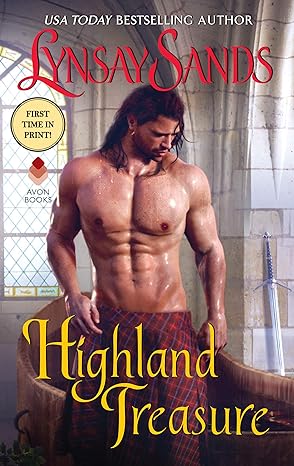Struggling with your memoir?
|
|
|
Worried that your memoir isn't exciting enough? Does your life feel like the kind of story that pretty much everyone has? In this video, Random House author Wendy Dale talks about two ways of ensuring that you're writing an interesting memoir. And as a bonus, she also gives a few tips on writing comedy as well.
0 Comments
“Use strong verbs.” If you’ve ever been given this advice, run. Or should I say, “Gallop and flee!” This is the kind of writing suggestion that sounds great at first because it seems like an easy fix. Supposedly, all you have to do is change your verbs to make them stronger and voila, your writing is instantly better. Here’s the truth: too many strong verbs can make your writing feel insincere and hyperbolic. Also, you might unintentionally change the meaning of what you’re writing.
Take the word “walk,” for example. Verbs that could replace “walk” could be slink, saunter, meander. The problem is, slinking is very different from meandering. Someone who slinks across the room is probably a person who isn’t trustworthy, while meandering creates a feeling of being unpreoccupied. So, just replacing a common verb with a stronger one doesn’t always make your writing better. Sometimes it creates a connotation you don’t really want. One of my personal pet peeves is a character who “nibbles” on something. Whenever I read this, I know that the writer was trying to think up a strong verb to replace the word “eat.” However, people who nibble either aren’t very hungry or they are excessively dainty. It’s not the same as just eating. Another thing to keep in mind is that cheap romance novel writers LOVE strong verbs. Apparently they were the ones who really took this advice to heart. Look at all of the strong verbs in this sample from Highland Treasure: “Here now!” Baron Monmouth protested, scurrying to his feet to chase after them as Rory led Alec through the large, as Rory led Alec toward the large keep doors. “What of FitzAlan? I told you he had a complaint he wanted you to look at.” “I had no agreement with FitzAlan,” Rory said, with unconcern, as he yanked the door open and strode out into the biting wind. It felt more like January or February than late November, and he could smell the promise of snow in the air. It seemed winter was coming early this year. “But I paid you a small fortune!” Baron Monmouth charged after him down the stairs. Maybe Rory is very angry and these strong verbs help express that. But to me, it just sounds like the writer is trying too hard. It feels kind of over the top. Strong verbs tend to take me out of the story and make me focus on the words on the page. In the books I really love, I don't notice the writing unless I make a conscious effort to do so. Instead, I am simply transported. Here is a sample from Toni Morrison’s Song of Solomon, and as you might expect, it's not loaded with strong verbs. He fought the evergreen for a better look, hampered more by his laughter than by the branches. Ruth jumped up as quickly as she could and covered her breast, dropping her son on the floor, and confirming for him what he had begun to suspect—that these were strange and wrong. Before either mother or son could speak, rearrange themselves properly, or even exchange looks, Freddie had run around the house, climbed the porch steps, and was calling them between gulps of laughter. Here is this same sample that is rewritten with strong verbs. See if you can feel the insincerity. He battled the evergreen for a better look, vanquished more by his laughter than by the branches. Ruth leapt up as quickly as she could and shielded her breast, relinquishing her son to the floor, and confirming for him what he had begun to suspect—that these were strange and wrong. Before either mother or son could consult with one another, rearrange themselves properly, or even exchange looks, Freddie had galloped around the house, ascended the porch steps, and was bellowing at them between gulps of laughter. *** I much rather prefer the original version. I hope you feel the difference. May your writing be footloose and strong-verb-free! Hi Guys! Last week I discussed why using emotion words—happy, sad, confused—don’t convey emotion. Today, I cover the bad advice of using bodily sensations like, “my hands were sweating and my heart started pounding,” to express emotion. I think of it as a cheap way to show emotions. Writers often make the mistake of assuming that if their heart is racing, readers will automatically understand their fear. But physical descriptions aren’t an effective way to show emotion. A better way to do this is to put us inside the narrator’s head, like you’re reading their thoughts. Romance novelists love using bodily sensations in their books. Here’s a sample from Highland Treasure: Gasping with relief as she made it off the last step, Elysande collapsed to the cold stone passage, every muscle in her body trembling with exhaustion. Elysande swallowed the bile rising in her throat and nodded grimly. She would walk if it killed her. Cold creeping down the back of her neck, she let her skirt drop and straightened, ears straining. At first there was nothing. While you get a description of Elysande’s physical state, you don’t get any introspection. And as a result, you, as a reader, aren’t affected emotionally.
While romance novelists love using bodily sensations, you’ll find them used very sparingly in the works of respected authors. To help you understand the difference between cheap writing and Nobel-prize-winning prose, first take a look at the following text: There were butterflies in his stomach. He looked around for a mirror so that he could see his own face, yet a twinge of anxiety caused his hands to tremble. His breath was shallow and his nerves were on edge. Finally, he gave up and lay back in bed, his heart pounding. What you just read is the “romance-novel-writing version” of Toni Morrison’s prose. Did it work to affect you emotionally? Here is the original version from the novel Sula, which has no bodily sensations. Instead, Morrison puts us inside the character’s head: Laced and silent in his small bed, he tried to tie the loose cords in his mind. He wanted desperately to see his own face and connect it with the word “private”—the word the nurse (and the others who helped bind him) had called him. “Private,” he thought, was something secret, and he wondered why they looked at him and called him a secret. Still, if his hands behaved as they had done, what might he expect from his face? The fear and longing were too much for him, so he began to think of other things. That is, he let his mind slip into whatever cave mouths of memory it chose. *** Hopefully you feel the difference. Don't you think what Morrison did was so much more effective? I’m not saying to completely get rid of bodily sensations in your writing, but avoid excessive use. There's a limit to how many heart poundings and stomach clenchings your reader can take before your writing falls flat and lacks impact. Instead, put us inside your narrator’s head. Wishing you lots of productive and emotion-filled writing. 🙂 It's so frustrating coming across writing advice that is terrible, tips that will make a person's book worse instead of better. So how do you know what advice is good and what advice to steer away from? Random House author Wendy Dale explains the difference in this video, using comparisons between the prose of Nobel-prize-winning author Toni Morrison and the romance writing of Lynsay Sands. My favorite authors never use a single emotion word—happy, sad, angry, confused—you know the rest. So many writers think that packing their memoir with emotion words is what will get a reader to feel that same emotion. However, this is not actually the case.
Let me show you why with an example. The text that follows is full of emotion words. But how much do you really feel when you’re reading this text? Sample 1: Hope dying in her chest, Claray turned her uninterested gaze to see three men on horseback crossing the drawbridge. Guests arrived late to the wedding, she supposed, unhappily, and shifted her attention toward the chapel. The witnesses to her doom were made mostly of MacNaughton soldiers and a very few members of the Kerr Clan. It seemed most did not wish to be part of their laird's betrayal of his own niece. “The Wolf,” her uncle muttered with what sounded like confusion. Claray glanced sharply back at her uncle to see the perplexed expression on his face. *** Using lots of emotion words is what I like to call “shortcut writing.” This is the kind of writing used in pop thrillers and cheap romance novelists, but it doesn’t work for memoir. In fact, the book I took the previous text from is titled The Highlander Takes a Bride. Take a look at this second example and notice how it feels different to read. Sample 2: Laced and silent in his small bed, he tried to tie the loose cords in his mind. He wanted desperately to see his own face and connect it with the word “private”—the word the nurse (and the others who helped bind him) had called him. “Private,” he thought, was something secret, and he wondered why they looked at him and called him a secret. Still, if his hands behaved as they had done, what might he expect from his face? The fear and longing were too much for him, so he began to think of other things. That is, he let his mind slip into whatever cave mouths of memory it chose. *** In sample two, we get a very different kind of writing, the prose of Nobel-prize-wining author Toni Morrison. Notice how Morrison didn’t use words like sad, happy, joyful, or upset. Granted, there are two emotion words in the paragraph—fear and longing—but they’re used as nouns. These words aren’t shortcut writing because they do not take the place of the character’s thoughts, which is what works to affect a reader emotionally. Good memoir writing makes us feel like we are inside your narrator’s head. When we read your narrator’s thoughts on the page, we can’t help but have an emotional experience. (Quick note: In fiction, you can put us inside the head of your narrator and your characters. In memoir, you only want to do this for the first-person narrator.) So who would you rather sound like? The bestselling author of the Highland Brides romance series or a Nobel-prize-winning author? Wishing you lots of happy writing. 😁 Subjective writing is what transports your reader. But how do you make the writing subjective when telling another person's story? Random House author Wendy Dale gives three tips for accomplishing this effectively in this video. If you want to get me riled up, just mention the phrase, "Show, don't tell." Why? Because I've seen so many writers use this advice to make their writing worse.
It’s not that this advice is wrong. It’s that it is misinterpreted by nearly everyone who espouses it. One example I often hear is “Don’t tell us what a character is feeling. Instead, you need to show us.” But is that really the best way to get emotion across? Is showing a character’s angry expression and aggressive gestures the best way to help put your reader there with you? To help you understand why "show, don't tell," is advice that isn’t very helpful, let me give you three short writing samples. Don't worry about whether the text is showing or telling; simply think about which one you like best: Sample 1: "Maya was angry." Sample 2: "I hate you!" screamed Maya, throwing a jar of grape jam against the wall, which shattered on the floor with a crash. Sample 3: "I could tell Maya was mad. But I also knew that this anger would fade. An hour from now, she would curl up with me on the couch and offer me warm buttered popcorn as an apology. But for now, I had to let her rage. Otherwise, it would seep and fester, and she would wind up giving me the silent treatment for days." If you only got to pick one of these samples to include in your book, I imagine you'd pick number three. What I want you to notice is that there is no showing in this sample. The writing isn't describing Maya’s anger or giving me a visual sense of how her anger manifests itself. Instead, the writer lets us know how she feels about Neeta's anger. In short, the third sample is all telling. Now, let's talk about why sample three works to pull a reader in. It has to do with the difference between subjective writing and objective writing. Objective writing describes what a person sees or hears -- in fact, it's what anyone who happened to be there would describe. It could include what a character is wearing, what the room looks like, or what the narrator is doing. Subjective writing, on the other hand, is what a narrator thinks or feels. I like to think of subjective writing as "putting us inside the narrator's head." And it's this subjective writing that creates an emotional experience for the reader. Why is number three the strongest writing sample? Because it works to affect a reader emotionally. If I had to choose between "showing" and "telling," I'd pick "telling" every time. Telling is pretty much synonymous with subjective writing, which is what works to make your prose rich and engaging, what works to pull your reader in. If you’d like more information on subjective writing and how to use it to make the prose in your book rich and affecting, check out this video: https://www.youtube.com/watch?v=EuYLebMDJhE Wishing you lots of happy writing. |
AuthorA Random House author offers tips on writing your own memoir. Archives
July 2024
Categories |
|
|
Memoir Writing for Geniuses.
All rights reserved. |




 RSS Feed
RSS Feed